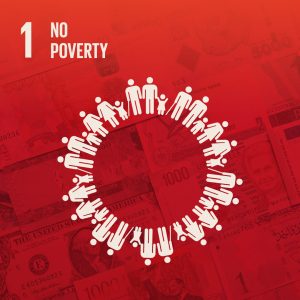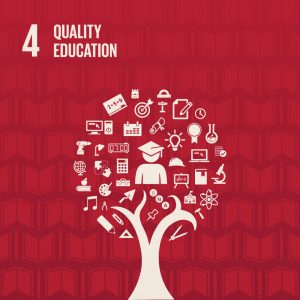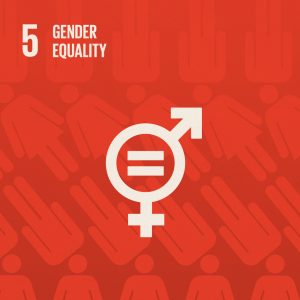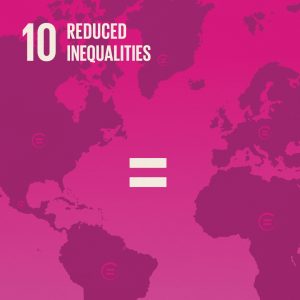by Randy Martin, Office of Sustainability
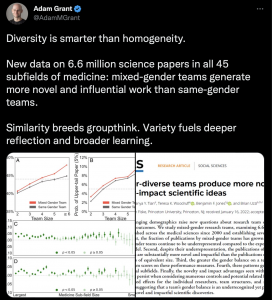 As I begin, I feel as though most are familiar with the moral cases for diversity, so I want to draw attention to this tweet from Adam Grant, a leader in Organizational Psychology and award-winning author. As he states, a recent paper titled Gender-diverse teams produce more novel and higher-impact scientific ideas was published in the Proceedings of the National Academy of Sciences, that gave support to the effectiveness of gender-diverse research teams. This paper analyzed 6.6 million published papers and found that gender diversity played a significant role in paper impact and novelty.
As I begin, I feel as though most are familiar with the moral cases for diversity, so I want to draw attention to this tweet from Adam Grant, a leader in Organizational Psychology and award-winning author. As he states, a recent paper titled Gender-diverse teams produce more novel and higher-impact scientific ideas was published in the Proceedings of the National Academy of Sciences, that gave support to the effectiveness of gender-diverse research teams. This paper analyzed 6.6 million published papers and found that gender diversity played a significant role in paper impact and novelty.
Isn’t this what we strive for in our institution? In our capacity as both a research and learning institution, don’t we strive for excellence and impact?
Thankfully this paper isn’t a stand-alone but another adding to the mounting evidence that diversity produces high-impact results.
That said, Diversity and Affordability is a category in the STARS¹ assessment. They have acknowledged the importance of diversity among institutions not only for the benefit of historically under-represented groups but for the whole of society. Building an equitable higher education system is a pillar of building a sustainable society. This goes beyond statements and proclamations to the actions institutions are putting in to ensure students from underrepresented groups and low-socioeconomic status can attend and be empowered to flourish.
These ambitions align with the United Nations Sustainable Development Goals.
- Goal 1: End poverty in all its forms everywhere
- Goal 4: Ensure inclusive and quality education for all and promote lifelong learning
- Goal 5: Achieve gender equality and empower all women and girls
- Goal 8: Promote sustained, inclusive and sustainable economic growth, full and productive employment, and decent work for all
- Goal 10: Reduce inequality within and among countries
Subcategories
-

Diversity and Equity Coordination: To earn credit for this category, an institution must have an entity that is charged by the governing body with the role of promoting diversity, equity, inclusion, and human rights on campus.
Auburn’s Score: 1.44/2
-

Assessing Diversity and Equity: To improve, you must know where you currently stand. That is why this credit is awarded to institutions with structured assessment processes that measure the institution’s campus climate toward diversity, student outcomes, and employee outcomes. These measurements must include the experiences of underrepresented students, faculty, and staff.
Auburn’s Score: 0.75/1
-
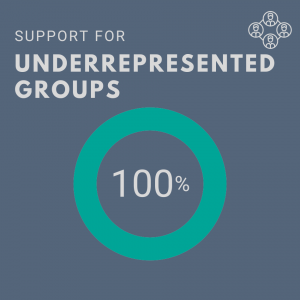
Support for Underrepresented Groups: Underrepresented groups can often face varied challenges on campus. Therefore, STARS awards institutions with support programs and systems in place to foster academic and social flourishing of individuals who identify as part of an underrepresented group.
Auburn’s Score: 3/3
-
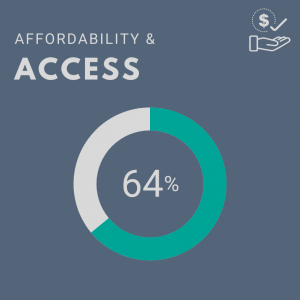
Affordability and Access: For higher education to bring about greater equity within our society, institutions must be accessible to low-income students. STARS awards points to institutions on the percentage of need-based aid met, the percentage of students graduating without loan debt, the percentage of low-income students accepted, and the graduation rate of low-income students.
Auburn’s Score: 2.54/4
Reflections
Auburn is making strides in pursuing a more diverse and inclusive campus. Institutionally we are taking the right steps, and that is reflected in our STARS scores. We have an office (Office of Inclusion & Diversity) dedicated to Diversity, Equity, and Inclusion (DEI), along with proper surveys of the cultural climate around DEI. Where we really shine, however, is in our support for students from underrepresented groups. There is a plethora of resources for students and faculty from underrepresented groups, including but not limited to scholarships, mentorships, partnerships, support groups, bias response teams, pipeline programs, and extracurricular activities.
One support program that I want to draw attention to is the Cross-Cultural Center for Excellence (CCCE). The purpose of the CCCE is to “ease the social transition of underrepresented students to Auburn University. The CCCE provides programming and activities for student engagement, facilitating cross-cultural learning experiences where all students can engage in dialogue, develop leadership skills, and build collaborative relationships that will help them be effective in an increasingly global society.”
We can improve this score in three ways. The first way is to publicly publish the Spring 2022 DEI Campus Climate study results. Secondly, require or heavily encourage staff and faculty to participate in cultural competency, anti-oppression, anti-racism, and/or social inclusion training. In this latest report, less than 50% of faculty and staff have undergone any of the aforementioned trainings. On the brighter side, more than 50% of students have undergone some training.
However, the main way we can improve is by accepting and assisting low-income students. Auburn ranks dead last in the percentage of low-income students admitted and the percentage of need-based aid met among SEC schools and in-state schools that report to STARS. Auburn isn’t last by slim margins, either.
On the bright side, it seems President Roberts is aware of the issue. He just announced the formation of the President’s Diversity, Equity, and Inclusion Advisory Committee. I’m looking forward to how this committee will impact the university.
¹The Sustainability Tracking, Assessment, and Rating System (STARS) program is a self-reporting framework for institutions of higher education to track their sustainability performance created by the Association for the Advancement of Sustainability in Higher Education. Overall, STARS is made up of 211 possible points in 64 different subcategories. The subcategories are grouped by Academics, Engagement, Operations, and Planning & Administration. Additionally, participants may receive extra points for exemplary and innovative practices. In this summary, our score is shown over the amount of possible points for each credit. View Auburn University’s 2022 STARS Report for more details.
Learn about the SDGs & AU and our contributions related to this post.

